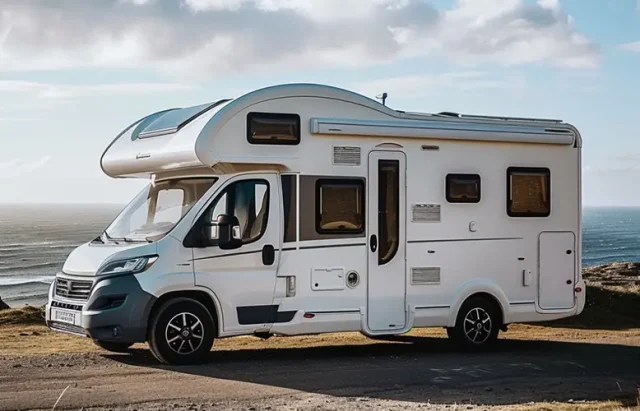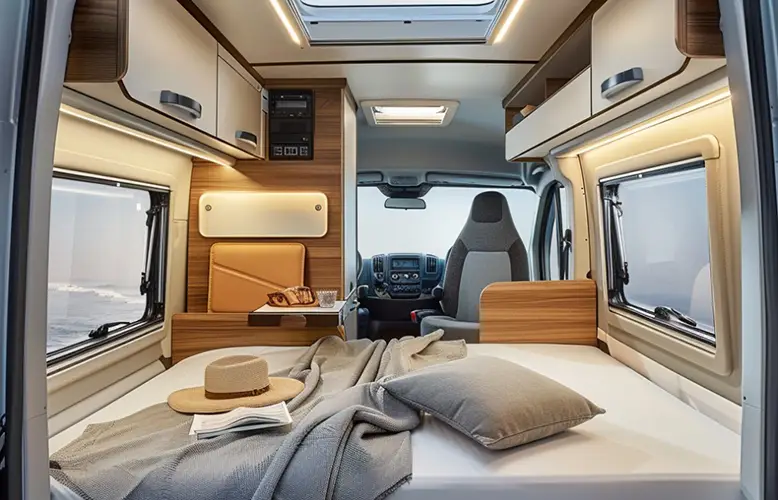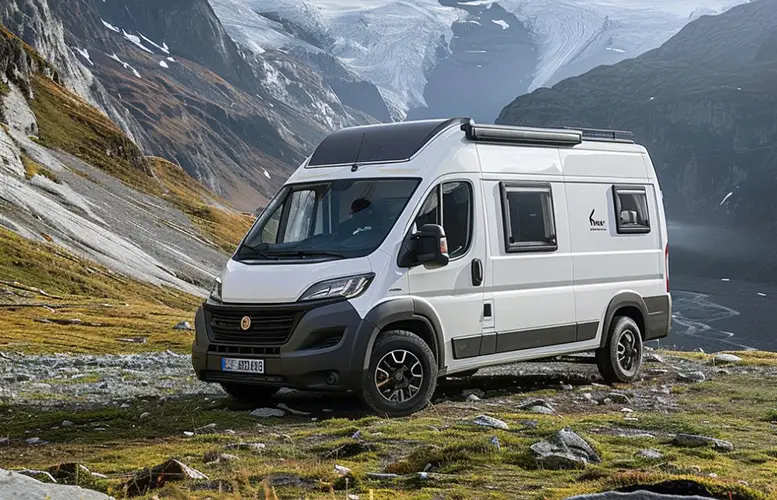
One of the most important steps in preparing for your next road adventure would be to decide between a camper van and an RV. Both have different advantages that can best adapt to different ways and needs of traveling. This will compare camper vans versus Rvs (mostly about Class C) to help you know which might serve your exploration better.
Size and Maneuverability
Camper Van: The camper vans (RV Class B) are way smaller, thus much more manageable as opposed to an RV (Class C and A). The way they are handled is far superior: cornering city street corners with great ease, slipping into a standard parking space will be very easy. Not to mention, you can drive them on rougher roads to reach out-of-the-way spots that bigger vehicles couldn’t dream of going to. The Ford Transit cabinets also allow a camper van to enable a person to make full use of the space while economizing on storage space without losing it.
RV: Size is certainly one of the more prominent factors in the RV vs camper van argument.
Indeed, RVs do have a great deal more living space, but often at a cost to their maneuverability. Indeed, Class A and Class C RVs are larger and do take some careful planning along the route for traveling and overnight parking. Many campsites with smaller areas won’t work, so they are mostly relegated to larger campsites and other areas that have a larger space area.

Living and Storage Space
Camper Van:
Even though camper vans have very tiny interior space, they still call for a rather minimalist approach to travel. Storage solutions like cabinets for the Sprinter van make use of every single inch available. Thus, it would be quite ideal for solo travelers or couples.
RV: In this battle of RV vs camper van, their opponent simply can’t compare in living space. They are fully equipped with various areas wherein one could sleep, dine, and relax, usually with a full bath. In this kind of scenario, an RV would be more appropriate for families or even longer and more comfortable stays.
Cost Factors
Camper Van:
Campers are much more affordable than RVs in purchase price, running costs, maintenance, insurance, or even fuel efficiency.
RV: Being larger and having more elaborate systems, the running and purchase cost of RVs are pretty high compared to camper vans. For some things, like fuel, it can actually be much more expensive.

Lifestyle and Flexibility
Camper Van:
Perhaps one of the major advantages in this camper van vs RV consideration has to do with the flexibility that a camper van could give its owner. They are perfect if one wants spontaneity and changes in travel plans at every turn. They fit very well in a nomadic lifestyle and create fraternities among like-minded travelers.
RV: While camper vans are designed for versatility and freedom of movement, RVs have a more stable and comfortable setup suitable for RV vs. camper van travelers who want to be in one location for much longer. They compare to a home on wheels, with luxuries like satellite TV and self-contained laundry facilities.

Environmental Impact and Efficiency
Camper Van:
In camper van vs RV disputes, the former generally comes out on top in such areas as improved fuel efficiency and environmental friendliness due to their more modestly sized engines and weights that provide less pollution and less restricted use in sensitive areas.
RV: These have larger impacts on the environment in that they have huge engines and heavier weights, which translate to less fuel efficiency and probable limitation in places sensitive to the environment.
All is going to depend on your personal travel style, budget, and kind of experience you wish to have in the camper van vs RV comparison.
If flexibility, cost reduction, and maneuverability are what you want, then a camper van might just be the right choice. If what you want is space, comfort, and longer stays, an RV would do. Both cars are excellent opportunities to witness and enjoy life on the road; thus, weigh your options to choose the best car for your adventure.





